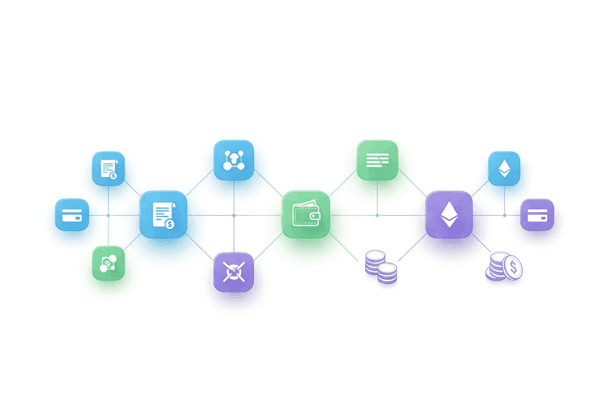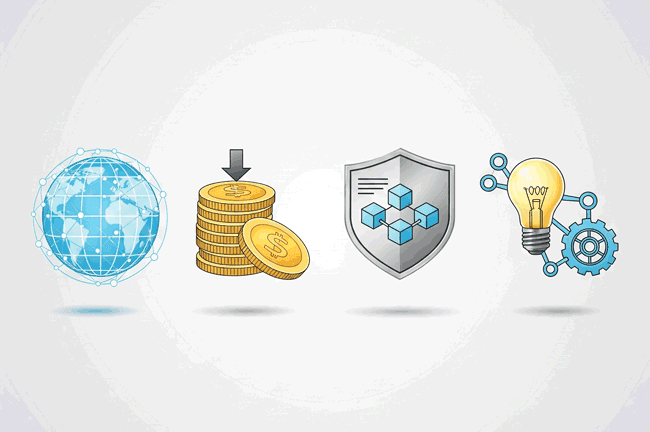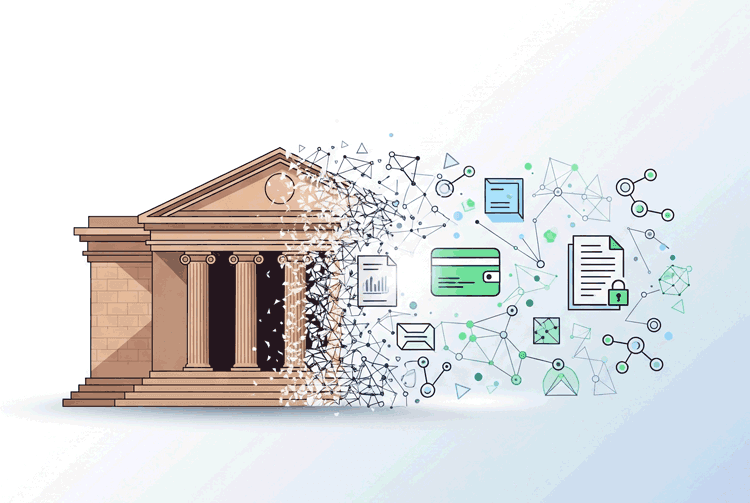Decentralized Finance (DeFi) is changing banking forever by transforming the way financial services operate. Unlike traditional banking systems that rely on centralized institutions, DeFi uses blockchain technology to create a transparent, open, and permissionless financial ecosystem. This shift is enabling anyone with an internet connection to access banking services without intermediaries, fees, or restrictions, effectively redefining the future of finance.
What Is Decentralized Finance (DeFi)?

Decentralized Finance (DeFi) refers to a broad range of financial applications built on blockchain networks, primarily Ethereum, that aim to recreate traditional financial instruments in a decentralized architecture. DeFi eliminates the need for banks, brokers, or other financial middlemen by using smart contracts—self-executing contracts with the terms of the agreement directly written into code.
These smart contracts automatically execute transactions when certain conditions are met, reducing human error and increasing trust through transparency. Services like lending, borrowing, trading, insurance, and asset management are all being reimagined within the DeFi space, often powered by price-stable assets such as stablecoins to reduce volatility risks.
How Is DeFi Changing Banking?
Traditional banking relies heavily on centralized control, requiring customers to trust banks to manage their money, approve loans, and process transactions. This model often involves high fees, slow processing times, limited access for underserved populations, and a lack of transparency.
Decentralized Finance (DeFi) changes all that by removing intermediaries and offering direct peer-to-peer financial services. Users maintain full control of their assets via private keys and can participate in a global financial market 24/7 without needing permission from banks or governments.
Benefits of Decentralized Finance (DeFi) in Banking

1. Accessibility and Inclusion
One of the most significant impacts of Decentralized Finance (DeFi) is financial inclusion. Around 1.7 billion people worldwide lack access to traditional banking services. DeFi platforms require only an internet connection and a digital wallet, making financial services accessible to anyone regardless of location or credit history.
2. Lower Costs and Faster Transactions
Because DeFi operates without intermediaries, transaction fees are drastically reduced. Moreover, blockchain-based systems can process transactions much faster than traditional banks, which often rely on legacy systems and business hours.
3. Transparency and Security
All DeFi transactions are recorded on a public blockchain, offering unprecedented transparency. Users can verify transactions and audit smart contracts themselves. Additionally, the decentralized nature of blockchain networks reduces the risk of systemic failure or fraud commonly seen in centralized systems.
4. Innovation and Flexibility
DeFi encourages rapid innovation by being open-source and permissionless. Developers worldwide can create new financial products and services that traditional banks may not offer, such as yield farming, flash loans, and decentralized exchanges.
Challenges Facing Decentralized Finance (DeFi)
Despite its promise, Decentralized Finance (DeFi) faces challenges. Regulatory uncertainty is a major hurdle as governments work to develop frameworks that protect consumers without stifling innovation. Security risks such as smart contract bugs and hacks also pose threats, as the ecosystem is still maturing.
User experience can be complicated for newcomers, with wallet management and transaction fees (gas fees) sometimes proving barriers to entry. However, ongoing developments are working to solve these issues.
The Future of Banking with DeFi

The trajectory of Decentralized Finance (DeFi) suggests a future where banking is more democratized, efficient, and user-centric. Banks themselves are beginning to explore blockchain and DeFi integration to stay competitive.
In the coming years, DeFi could become a backbone for global finance, offering seamless, secure, and inclusive financial services worldwide. As infrastructure improves and regulatory clarity emerges, the mass adoption of DeFi might make traditional banking models obsolete or at least significantly transformed.
Conclusion
Decentralized Finance (DeFi) is changing banking forever by breaking down barriers and creating a more accessible, transparent, and efficient financial system. While challenges remain, the potential benefits for individuals and the global economy are profound. Embracing DeFi means moving toward a future where financial power is in the hands of the many, not just the few.
As this decentralized shift continues, it also raises important questions about how Central Bank Digital Currencies (CBDCs) might coexist—or compete—with DeFi systems.
One notable example of DeFi in action is Avalanche (AVAX), a high-speed, low-cost blockchain platform designed to support decentralized applications at scale. Its growing ecosystem highlights how efficient and scalable DeFi solutions can reshape the future of finance.













